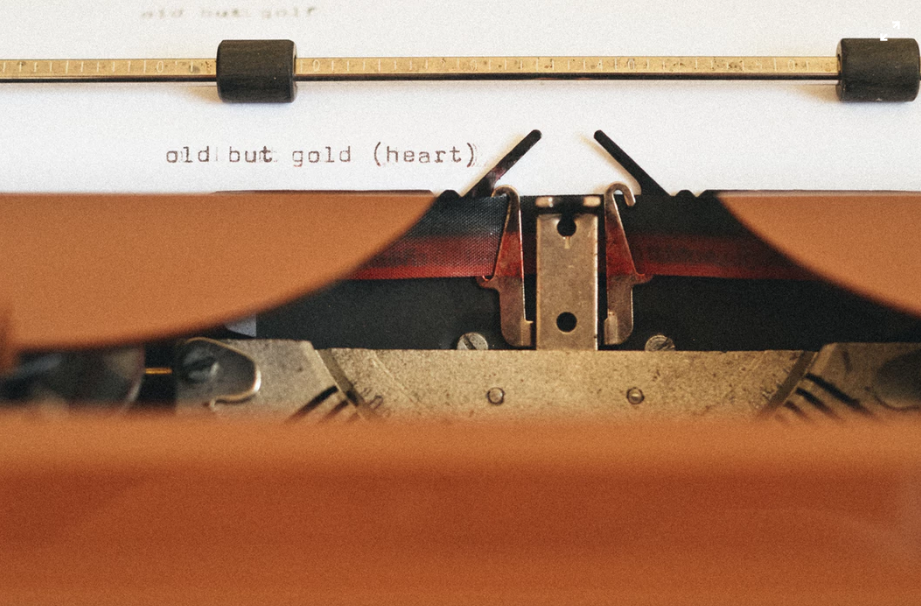
by Melissa Bee | Oct 24, 2018 | Book Review, From the Inside
I read this book through two times. I enjoyed it so well that I developed an eight-week curriculum from this book, and as the Vice President of the NAACP here at Madison Correctional Institution, am in the process of preparing a proposal to purchase enough copies of the book to host the program.

The author writes about:
♦ Owning your choices – stop blaming others, and take ownership of your decisions.
♦ Sifting through brokenness – what has caused you pain throughout life?
♦ Forced change – we all endure change throughout life – how do you deal with it?
♦ Defining your life mission – who are you, and where are you going?
♦ Preparing for your “big move” – what changes are you going to make in life, and how will you ensure these changes lead where you are going?
♦ Organization – self explanatory, eliminate the clutter.
♦ Funds – are you setting money aside and planning financially for possible hardships in life?
♦ Investing in your life – are you paying what it takes to get where you want to go?
♦ “Pruning your life” – what people, places, and things do you need to cut loose?
♦ Networking – who can teach you what they did to get where you are trying to, by sharing their experience?
♦ Becoming an expert – learn all you can about where you want or what you plan to accomplish in life.
♦ Just a season – everything in this world is temporary.
♦ Quiet time – slow down and relax.
♦ Removing negativity – need I say more?
♦ Creating a winning mind – are your thoughts positive or negative?
♦ Volunteer for what you want – put yourself in position to gain experience and connections for whatever it is you want to do
Addional topics:
♦ Changing your pictures, finding a mentor, standing out, embracing failure, commit to consistency, changing the conversation, making a milestone out of your molehill, your personal standup comedy shows the beauty of the wait, your mirror moment, journaling your experience.
If you have faced any kind of hard times in the past, I recommend this book.
 I am incarcerated at Madison Correctional Institution, in London Ohio. I am serving 26 to life while fighting to prove my innocence. I am ready to get out so that I can reestablish relationships with family, and become the father to my beautiful three year old daughter that I dream of being. I am devoted to family and my community in a positive manner. Society will see with their own eyes that these accusations are not the man I am. I admit that I was not a model citizen, and had some personal issues that I needed to deal with, but nothing I did warranted 26 to life. Please help me prove my innocence.
I am incarcerated at Madison Correctional Institution, in London Ohio. I am serving 26 to life while fighting to prove my innocence. I am ready to get out so that I can reestablish relationships with family, and become the father to my beautiful three year old daughter that I dream of being. I am devoted to family and my community in a positive manner. Society will see with their own eyes that these accusations are not the man I am. I admit that I was not a model citizen, and had some personal issues that I needed to deal with, but nothing I did warranted 26 to life. Please help me prove my innocence.
God Bless
Roger Black 729370
PO BOX 740
London, Ohio 43140
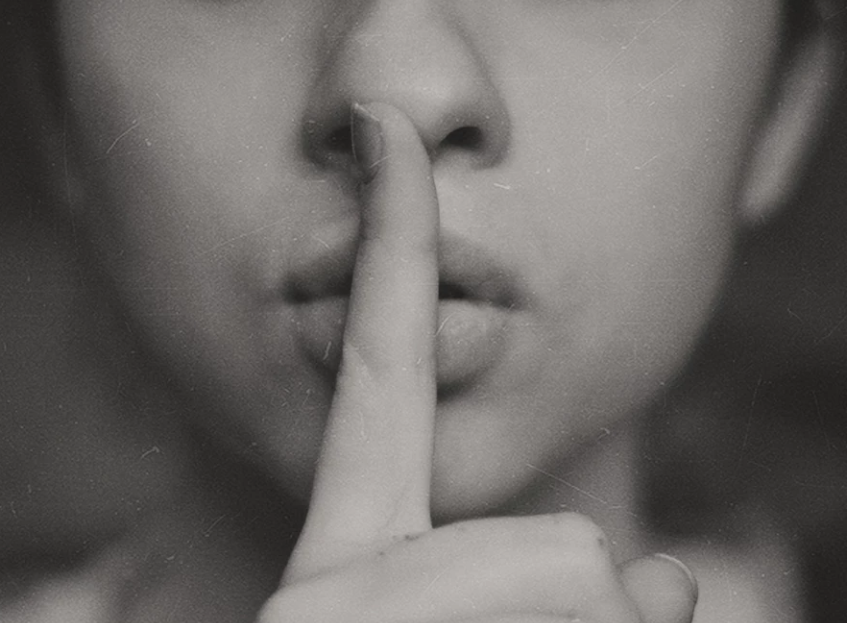
by Martin Lockett | Oct 22, 2018 | Inmate Contributors
Any woman in a relationship with a man in prison can attest to the fact that there will, unfortunately, be many in their families and inner-circle of friends who don’t approve of their relationships. Many who are critical of these relationships, however, are not coming from a place of experience or personal interaction with the incarcerated man, and therefore would give them a credible basis on which to judge him as a person — no. Rather, they operate from the standpoint of preconception, bias, and prejudice toward him — and anyone who is in his shoes — based solely on the fact that he is incarcerated. Simply put, they believe their friend or family member who is in this relationship can do much better, particularly with someone who is not locked up.
This is unfortunate because the fact of the matter is many good people reside behind bars — yes, I just said that. Most of us came to prison while in our addiction; this, however, is not nor was not reflective of who we are at our core. When forced to confront ourselves in a place of confinement such as prison, we tend to come to a place of honesty, growth, and for many of us maturity. We are in touch with ourselves and possess more qualities to offer in relationships than ever before; all we desire from those in society is a chance to be judged on who we are today. Unfortunately, many people disallow us this opportunity.
How sad it is that women who are in love with men in prison are denied the opportunity to talk to their girlfriends or family about their latest visit, phone conversation, or the amazing drawing, card or letter she recently received from her man. She knows any mention of him will be met with a scathing rebuke by some in her inner-circle. So, she is forced to keep it all to herself.
Why does she stay? they wonder. Why not leave him and find someone out here? they’ll ask. She tries to tell them she has met the man who understands her like no one else; that he is caring, sweet, and doesn’t judge her like many others do. She pleads with people she loves to just give him a chance to show he’s a good guy, but they’re not interested. Their minds are made up. As a result, she again shuts down and keeps them from her relationship lest they bring her down.
Here’s what I have learned: People with hardline positions who are not willing to have their positions challenged through experience are not going to budge one bit. They are intellectually lazy and emotionally stubborn. You can try to convince them to see something differently in the most direct or subtle ways, and they will refuse to be open-minded. So, for women in this type of relationship, when it comes to trying to get them to accept your man the way you see him — as a person deserving of a second chance — I would offer one rhetorical question: why even bother? You are wasting your time, energy and effort in trying to move an “immovable object.”
The best approach that will provide you with the most peace and serenity is to accept that they will be who they are; they will not give your man the benefit of the doubt. But, truthfully, that’s not what matters. What does matter is the fact you are happy and secure in your relationship. What should keep you going is the confirmation you get every time you talk to him, visit him, or receive a letter expressing exactly how he feels about you, how he tells you he can’t wait to spend every day outside of prison with you by his side. Let these sentiments carry you and comfort you in the midst of the unwarranted judgement and condemnation from those around you. Remember this: what others think about you is none of your business. What ultimately matters is what you think about yourself and your relationship. If both give you peace and happiness, then rest in that. Why bother trying to convince others they should feel the same way?

by Melissa Bee | Oct 21, 2018 | From the Staff, News

Boo
Greetings from AI!
If you’re like us, 2018 is speeding by – how is it already fourth quarter?
We haven’t checked in with you in some time, and wanted to send a quick update about what’s been going on behind the scenes, and what’s coming up.
News
♦ We recently surpassed our goal of 600 adopted inmates by the end of this year – at this rate we may hit 700 before 2019. Thank you from the bottom of our hearts to all the new adopters.
♦ For those who are still waiting, we appreciate your patience – you should be hearing more very soon. Feel free to check in by email to find out where you are on the list.
♦ Huge shout out to Amanda C, Cynthia H, and Tina L, for the countless hours you’ve put in helping clear out the new adopter requests. I wish I could pay you what you’re worth – you rock!
♦ The next issue of our quarterly-ish newsletter is in the works – watch your inbox!
♦ We have some new contributors to our blog and lots of news to share in the coming weeks. Do subscribe so you don’t miss out on any new posts. Be sure to see today’s sweet letter from one of our adoptees, dedicated to his adopter, Mrs. C.
♦ Saving the best news for last – the founder of AI, my brother Rick, should be released early next year. He is the heart and soul of AI, and his constant support and guidance has been invaluable.
Thank you for being part of the AI family.
Melissa, Rick, Leah, Boo, and everyone at AI
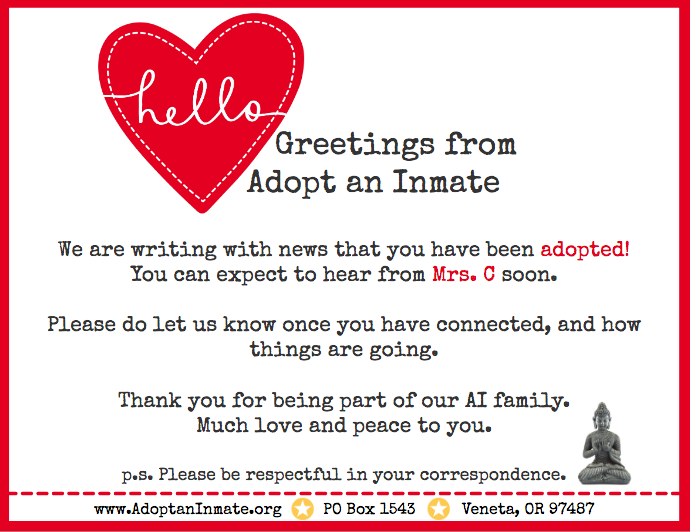
by Boundless in the Midwest | Oct 21, 2018 | Inmate Contributors
“I is adopted!!!”
Not proper grammar, to be sure, but this was the response I sent Melissa when I got the news. The feeling I had was one of pure elation. It was as close to having a religious experience as I have had in a decade – so much so, that my total outlook since that day has only been positive. I have learned to feel joy again, to embrace hope.
In this current climate, it seems that good news, real good news, just doesn’t happen that often. I asked myself why, pondered the possible answers, and then asked myself why not? When I was a free man the only person who was truly responsible for my happiness was me. Oh sure other people could influence me and my moods but in the end it was my choice to be happy or not happy.
In prison I am told what to eat, when to eat, when to work, when to sleep and even when to use the restroom. Yes, even when to urinate. Every aspect of my life is controlled. Many of those over me feel they are not doing their job if they ever see me or another inmate smile. Yet I smile.
 Do you wish to create some good news in the world? I know I do. Here is how you, just one person, can change the world. Adopt an inmate. It’s simple, pain-free and a great way to prove that one person can change the world.
Do you wish to create some good news in the world? I know I do. Here is how you, just one person, can change the world. Adopt an inmate. It’s simple, pain-free and a great way to prove that one person can change the world.
What adoption means is simply making a pledge, a commitment, to correspond with an inmate by snail mail or e-mail. You can give hope to someone who has lost faith in human compassion — to somebody who most likely has lost everyone they ever loved or cared about.
Everything about prison slowly strips your humanity away. Everything about prison teaches you not to trust anyone. It is a vicious cycle that turns men who made a mistake into career criminals and some men into worse. The average inmates I know developed an inferiority complex and began to resent society as a whole. We miss the real world so much that it turns into frustration and helplessness. All it takes to stop the trend is an angel with a few minutes to spare each month.
For many of us, it is as if time has stopped and we are trapped in a bubble. For me every day was February 12, 2012. I was broken until Mrs. C adopted me.
On April 7th, 2018, I received a polite, well-written e-mail from a complete stranger. It was short and to the point, but for me, a total stranger was treating me with respect. What? I had forgotten what it felt like to be treated like this. Mrs. C ended the e-mail with “All my best.” I was in shock. Later that day I received a second e-mail, and again Mrs. C was polite. She wrote me as if I were a long-lost friend who had merely lost contact with her, or so it felt. After I finally came out of shock, I was sure it was a mistake.
The following day I received an e-mail from Melissa from Adopt an Inmate, telling me I had been adopted by Mrs. C. It was after I reread that email for the fourth or fifth time that I realized the too-good-to-be-true woman who was treating me like a real person was true. GASP. It was not a mistake. I cried over the good news, then my clock started back up, it was no longer February 12, 2012.
I will forever be grateful to Mrs. C and dedicate this article to her. We e-mail back and forth a few times a week and I feel human again.
You want to change the world for someone? It can be done. It takes only a little effort. Mrs. C agreed to contact me once a month, but has gone beyond this. Thank you Mrs. C., for being a light in my darkness.
What adopting an inmate is not. It is not a dating service. It is not putting money on phone or commissary account or paying for a food box. You are not being asked to do anything more than treat a human humanely. You really can change the world by corresponding with one person.
You can talk about the weather, what famous movies were filmed near you, books, or trends. I suggest that politics and religion be avoided at all cost.
Inmates who get adopted should show respect for those who adopt them. Mrs. C is somebody I find witty and funny. I care not that she lives on the other side of the planet and I will never meet her.
A stranger has done for me what my family and friends would not.
I have once again realized that even in here, I am ultimately responsible for my own happiness. This is something my counselors have been saying for years. It took Mrs. C, her compassion, and her kindness for me to come to this conclusion on my own.
Thank you, Mrs. C., thank you, Melissa and everyone at Adopt an Inmate.
*Note: Boundless is correct, we ask for nothing beyond regular correspondence. We do have adopters who also choose to call and/or visit, put money on an inmate’s commissary account, send books or an occasional package. I have some adopters who send Christmas gifts to their adoptee’s children for Christmas or birthdays. All of these acts of kindness are appreciated, but not required.
We have a backlog right now, but with help from some dedicated volunteers we are working through the list, and continue to welcome all requests. If you’re one of the waiting adopters – expect to hear from us soon! Feel free to email us to see where you are on the list.
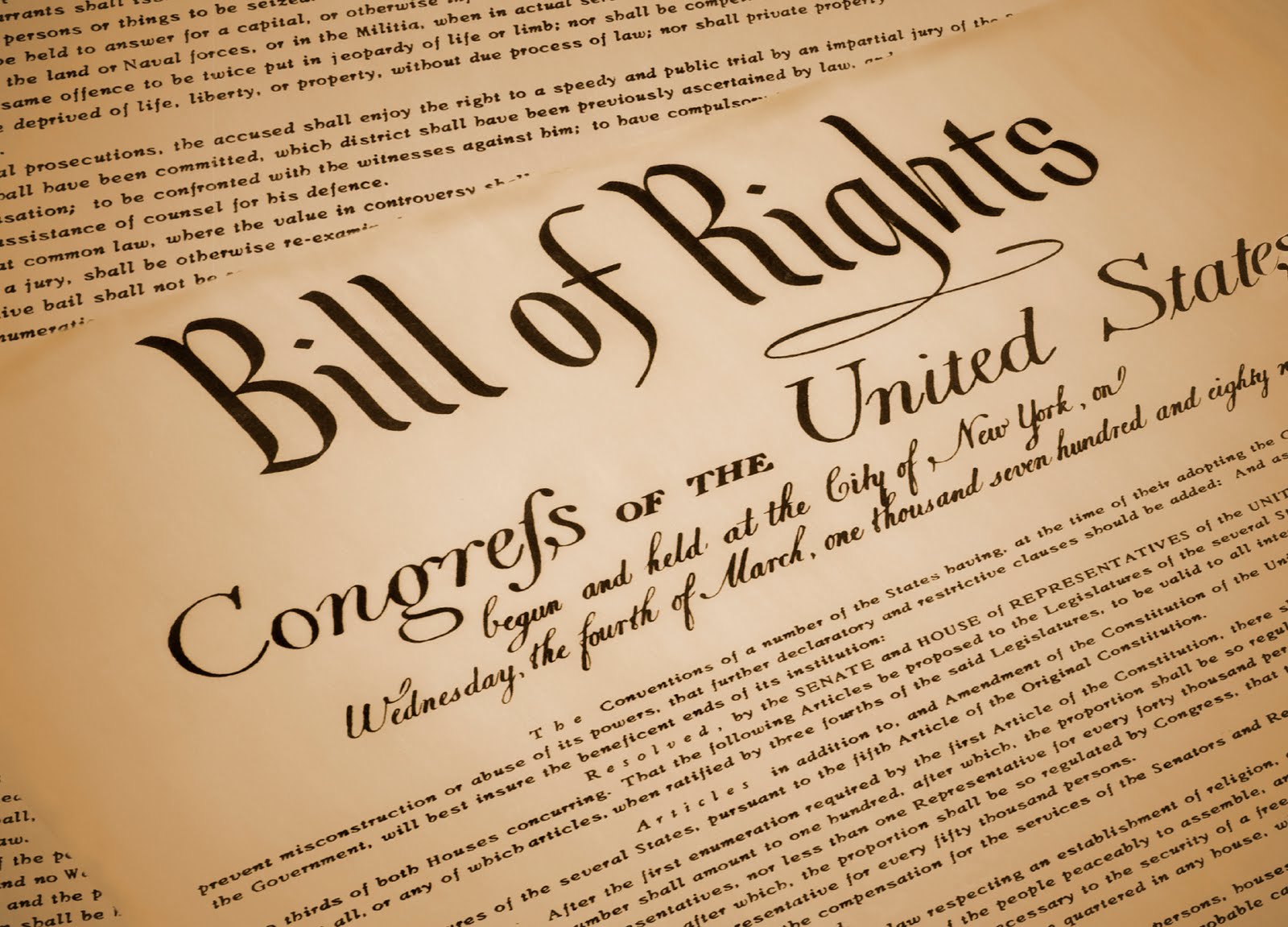
by Eric Burnham | Oct 19, 2018 | Inmate Contributors
It deeply saddens me that what has become institutionalized hypocrisy is rapidly leading to the erosion of civility and free speech in this country. Opposing views are rarely debated with substance and intellectual force. They are attacked with ritual humiliation and even violence. It is truly stunning how far we’ve strayed.
The First Amendment to the United States Constitution has guaranteed the free expression of ideas:
Congress shall make no law respecting an establishment of religion, or prohibiting the free exercise thereof; or abridging the freedom of speech, or of the press; or the right of the people peaceably to assemble, and to petition the government for a redress of grievances.
— First Amendment to the U.S. Constitution
There are no established ideas that are untouchable. We are all free to think for ourselves. This uniquely American ideal has informed and shaped the culture of this country for over 240 years. Recently, it seems, this is changing. But if congress — the body of elected officials granted the power to write the laws of the nation — cannot curtail the free expression of ideas, why are we doing it to each other?
The spirit of the First Amendment holds us to a standard: I may utterly despise absolutely everything you have to say, but I will always fight for your right to say it. Unfortunately, the shifting temperament of present-day culture has forgotten how precious this privilege is in history. People groups galvanized against other people groups have turned countrymen into enemies by alienating those who think differently. Examples are legion.
For instance, take the NFL players kneeling during the national anthem in protest: They have a fundamental right to express their displeasure with the structures of society they feel need to change — it is okay for them to have those views and to speak out about them! On the other hand, there are those who feel the sideline of a football field during the singing of the national anthem is not the venue for protest and are, consequently, offended — it is okay for them to have those views and to speak out about them! Regardless of one’s opinion about the issue, we should all cherish the fact that we live in a country where we can openly disagree, rather than attacking one another.
Inflammatory personal attacks are increasingly poisoning our public discourse, normalizing the degradation of the human beings with which we disagree. This is fragmenting American society, resulting in opposing factions taking stands against each other.
Another example, Laura Ingraham, a commentator on Fox News, told Lebron James to “Shut up and dribble” on her show that reaches roughly 20 million people. Her statement was made in response to Lebron’s posting of a private conversation with fellow NBA star Kevin Durant in which he expressed some political views.
Long-time comedian, Roseanne Barr, was publicly vilified and subsequently fired because of an admittedly grotesque and racist tweet about an African-American woman who formerly worked in President Obama’s administration. Yet the New York Times — just last week — defended one of its reporters after several derogatory, racist, and even violent tweets against White people surfaced. President Trump has continued to normalize incendiary remarks about virtually everyone with whom he disagrees. On college campuses across the nation ideas are shouted down if they are perceived to be controversial. The list goes on.
C’mon man! We are destroying our First Amendment rights in the fog of tribalistic warfare. What seems to have escaped our culture’s grasp is that we must remain united, linked together by the core values, the shared privileges of the First Amendment — because ideas and methods of expression are inherently subjective, and in the United States, we have been granted the privilege of being able to think differently than everyone else, even to hold racist, sexist, or homophobic views if we choose, as long as we do not act on them in ways that injure others.
Personally, I despise racism, sexism, homophobia, ageism, or any other ideas that work to install an artificial hierarchy based upon race, gender, sexual orientation, age, religion, or socioeconomic background, and I appreciate substantive arguments that marginalize those views. Yet, I still hold dear the Constitution that provides the liberty, by law, to hold and to express not only abhorrent ideas like these, but also those ideas that generate honesty, equality, progress, innovation, forgiveness, and love.
Freedom of speech is not free. We must never forget that. With the freedom to express our thoughts, feelings, opinions, and ideas comes the freedom to disagree — and the responsibility to defend that freedom. We may not like what someone else has to say, but we should engage those ideas in order to change the opinions behind the words we don’t like. Even if we strongly disagree with the opinions expressed, or the venues chosen to express them, we still must stand up for the right of them to be expressed. When opposing ideas are silenced, it should make all Americans tremble, whether they are black, white, brown, man or woman, gay or straight, young or old, republican or democrat. It is precisely for times like these that the First Amendment was ratified. Throughout history we have seen what happens in societies that succumb to the pressure to silence unpopular opinions — atrocity is never far behind. What if the winds of popular culture shift, and it’s your opinion they come for next?

by Martin Lockett | Oct 18, 2018 | Inmate Contributors
With over 2 million citizens of this country locked in cages, one can’t help but feel as though our lives are dispensable. One can’t help but feel as though our society deems us not worthy of correction that would send us back to our communities as assets rather than liabilities. If the trend has been to lock up, throw away the key, and provide very few mechanisms for rehabilitation, how can anyone reach an alternative conclusion to what I just outlined?
For myriad reasons, many of us chose a wayward path during our youth that involved crime, drugs, and more. It’s also important to note that this behavior took root before our brains were able to develop into a mature, rationally-minded person. Not to make excuses, but our immature brains that hadn’t undergone the process of strengthening our neocortex — responsible for rational thought, projection of consequences, goal-setting, and more (studies show the adult brain reaches full development around 26) — were in full swing in our decision-making processes. Many parents with teenagers and young adult children will readily attest to the frustration they endure over the many mindless decisions their impulsive children make; the good thing is most of these decisions are not costly, certainly not in terms of leading to violations of state laws that can result in long prison sentences. And then there are the rest of us.
Those of us who came to prison at a young age (prior to 26), are forced to navigate a new world of criminality, manipulation, violence, brutality, and inhumane conditions of many proportions. We are left with our self-preservation skills, will to survive, and, if we are lucky, an environment that supports our developmental process that will likely include a desire to change, learn, and grow. This is what I found early in my sentence and thank God I was able to take full advantage of the opportunities that presented themselves, eventually leading to a graduate degree and a state certification in the substance addictions field. I now have an insatiable drive to deliver these services to the community that I took so much from when I am released in a few short years. Today, my life has value, purpose, and meaning.
When human lives are trafficked through our penal system like product on a conveyor belt, dumped into large trash bins (prisons) with no way to climb out for countless years, our society sends us a powerful message of what our worth is — or is not. Yet, I have had the privilege (yes, that’s not a misprint) of knowing some of the most incredibly talented, altruistic, intelligent people I have ever known right here in these “trash bins.” I believe this is because while here they dug deep within themselves to discover who they really are without the influence of substances, negative environs, and, oh yes, the opportunity for their immature brains to develop. That’s the good news. The bad news is many of them will never see the light of day in the free world again. Many will be over 100 — if they’re so lucky — before their release date comes. Their talents, gifts, and value are limited to being realized only within these walls. What a shame.
We are encouraged to recycle many products after using them because we know, once sent through a process of being broken down and restored to new form, these products will once again have value; they will go on to serve another purpose. In the same way this is an expected outcome, human lives are also of value and purpose after coming through this rigorous process. Of course, we could do far better as a society with what we offer those in prison to restore themselves, but that aside, many undergo a life-changing maturation process while here based on their sheer determination and self-will. So please, in the same way you refuse to throw away your plastic milk cartons, do not throw us away — recycle us. Allow us to show you our value.

by Martin Lockett | Oct 15, 2018 | Inmate Contributors
For too many years of my life I assumed my actions affected me and only me. So what if I chose to drink away my pain? So what if I messed up, got arrested, and got sentenced to many years in prison: I’m the one doing the time, or so I thought. I couldn’t see beyond myself and the consequences I’d reaped to see the pain in the faces others who love me — not to mention in all the victims I created while living my life of crime and addiction.
My parents did the very best they could to raise my brother, two sisters, and me. They worked hard, bought us presents for every birthday and Christmases and spent quality time with all of us on a daily basis. We were never considered middle class from a financial standpoint, but I never felt as though I lacked anything that my middle-class friends had.
I added this context to show how my actions were strictly of my own volition — my parents raised us with values. So, when I came to prison at 19, my parents should have felt no guilt for my predicament; but what do you think actually happened? Naturally, any parent is going to question why their son (or daughter) went wayward, what they think they could have done differently to change the path I’d taken. My decisions tortured them, kept them up many a night, and brought them to experience agony they did not deserve.
They were now put in the unfortunate position of visiting their son in this god-forsaken place, often times being treated like a criminal themselves when they came to visit. They were compelled to now support me, not by giving me money for a birthday or Christmas but helping me buy commissary, hygiene products, and paying for phone calls. They did not deserve this — they never did. Now, they are both gone, and this is the last place they were able to hug their son.
My twin brother, sisters, nieces and nephew have likewise had to come into prison for 15 years (plus three more on a previous prison stint) if they wanted to see me. They are forced to celebrate my birthdays by sending a card — not taking me out to dinner or otherwise. If they want to talk, they have to pay $4.80 for 30 minutes. My nieces and nephew have not had their uncle at birthdays, Christmases, graduations, and so much more. I have been forced to watch them grow up through pictures. My family has been nothing but law-abiding citizens their entire lives and by no means deserve to be subjected to this situation. But because they love me, they would never abandon me. They do not deserve what my actions have put them through.
My victims and their families did not ask to have their lives shattered by the tragedy that I solely produced 15 years ago. Their lives were cut short, never able to reach the full potential they possessed. Future generations of their families will never meet them and come to know the beautiful souls they had. My addiction, recklessness, and complete selfishness severely altered their lives forever. They were doing everything right; I was doing everything wrong, and now they are not here but I am. How is that fair? I obviously cannot answer that, but what I can say with absolute certainty is they — none of them — deserved what I did to them.
For many of us in prison, because we are the ones physically secluded from society and deprived of any semblance of freedom, we equate this with the notion that we’re the only ones affected by our bad decisions. But as I have outlined here, this is simply a misguided, narrow-minded viewpoint. Not only our victims, but also our families, significant others, friends, and many others are affected by the costly decisions we made. Coming to prison is a burden to so many people who didn’t deserve it. The sooner I was able to realize this truth, the sooner I was able to start to rehabilitate. Cognitive classes, church, and educational courses are all positive ways to spend one’s time in prison, but without coming to terms with the massive ripple effect left in the wake of our crime and subsequent prison stay, true rehabilitation and accountability will be impeded.

by Martin Lockett | Sep 14, 2018 | Inmate Contributors
The following speech was delivered at the Weusi Umoja Social at OSCI — August 22, 2018
Good evening. I hope everyone is enjoying their time tonight with their friends and family. As it was just mentioned, this year we chose to honor Rosa Parks. She is obviously a well-known American icon who had a pivotal role in the civil rights movement, so we felt it was important to highlight exactly how she carved an indelible mark in American history.
On December 1st, 1955, in downtown Montgomery, Alabama, Rosa Parks boarded a city bus, paid her fare, and took a seat in the first row of back seats that were reserved for blacks. As the bus continued its normal route, all the seats that had been reserved for white passengers filled up. When the bus driver noticed a few white passengers standing, he moved the “colored” sign behind Mrs. Parks and demanded she move. After she refused several times, he threatened to call the police and have her arrested. Unfazed by his attempt to intimidate her, she calmly and defiantly replied, “You may do that.”
Her arrest garnered the attention of the local NAACP, and three days later it was announced there would be a bus boycott where all blacks would abstain from using any city bus for as long as it took for them to be treated with the same level of courtesy afforded white patrons. This undertaking needed coordination by a capable leader, so a young preacher from Atlanta was brought in to lead the bus boycott. He would soon become known to the world as Dr. Martin Luther King, Jr.

The Montgomery bus boycott was made possible because the black community banded together, rode in carpools, and took black-operated cabs that charged the same rate as bus fare; the remaining forty-thousand commuters walked. This would last for three-hundred and eighty-one days, forcing the city to repeal its Jim Crow law requiring segregation on public buses. This precipitative event catalyzed a mass movement, again led by Dr. King, known as the Civil Rights Era. This movement shone an undeniable spotlight on the everyday injustices that afflicted blacks in their communities across the country. These relentless efforts culminated with the passage of landmark legislation in the Civil Rights Act of 1964, followed by the Voting Rights Act of ’65
Years later Mrs. Parks sat down to be interviewed by her biographer, and in it she told him, “People always say I didn’t give up my seat because I was tired, but that isn’t true . . . I was only tired of giving in.” Whether she knew it or not, when she defiantly stayed in her seat, she became the face and voice of countless black people across this country who were also tired of being denied seats at lunch counters, or the right to vote in local, state, and federal elections. In that defiant moment she represented every black person who was tired of being denied employment and educational opportunities, those tired of being relegated to second-class citizens in the only country they had ever known
For her courage and tenacity that led to legislation that would benefit not just black people but society as a whole, she became affectionately known as the Mother of the Freedom Movement. Notice the operative word in that title is “movement,” and here’s why: Mrs. Parks and Dr. King are icons not solely because of their individual heroism, but because of the masses of people who joined in their fight, which constituted a movement
When we traverse the annals of US history, it is readily apparent that anytime there has been revolutionary social change it’s been attributable to the people. As imperfect as they may have been in 1776, it was the people who rose up against a tyrannical king to proclaim their independence and defeated, at that time, the world’s greatest military to establish their national sovereignty. From 1861 to 1865, it was the people — an army in fact — who fought their neighbors to the south to put an end to America’s original sin, settling once and for all that the US economy would no longer be predicated on human bondage. In 1920, again, it was the people who joined forces with fearless women across this nation to help them secure their inherent right to the franchise. From 1955 through 1965, it was the people who hailed from every corner of this country to stand with Mrs. Parks and Dr. King to fight for equality for those it had been denied because they understood that, despite our differences, we are all citizens of the same country that we love, have fought for and died protecting; and therefore are entitled to the same fundamental rights. And finally, in 2008, it was the people who — led by the courage of their conviction, casting aside any bias or preconception — did what I thought would never happen in my lifetime: elected the first black president of the United States of America. This is the story of America! And because we are a work in progress, it will continue to be the people who will advance the American narrative so that its future looks less and less like its troubled past, and more and more like the ideals and principles we espouse.
This is why Rosa Parks sat, why Dr. King marched, why Barack Obama ran and why we should all feel a moral obligation to act; to act with kindness toward people who may not look like us, talk like us, or dress like us; to commit random acts of service for people who have nothing to offer us in return; to act with the keen understanding that the evolution of our society in general and the enhancement of race relations in particular are contingent on each and every one of us — and the manner in which we treat each other. Enjoy the rest of your evening. Thank you.
“I have learned over the years that when one’s mind is made up, this diminishes fear; knowing what must be done does away with fear.”— Rosa Parks
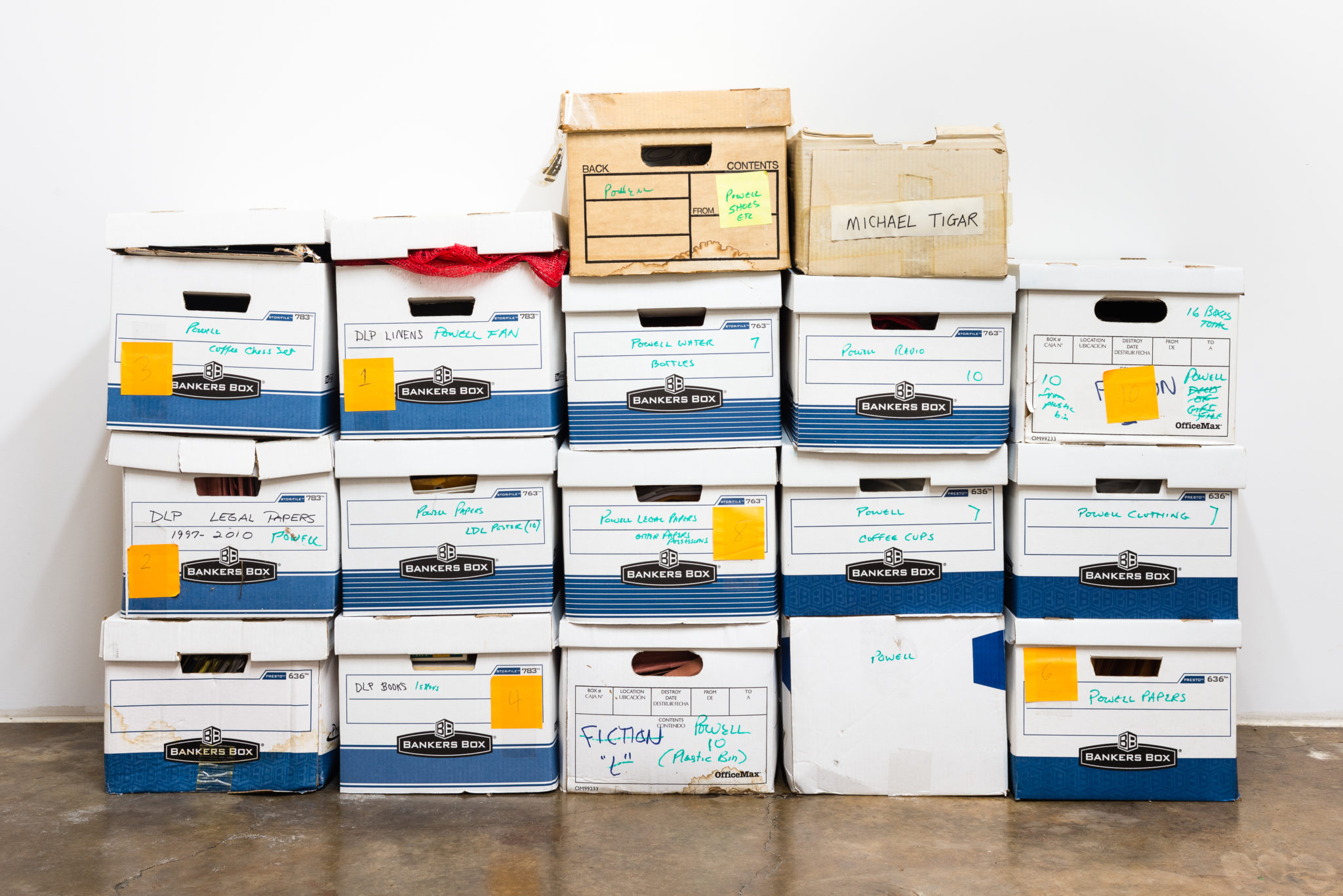
by Melissa Bee | Sep 9, 2018 | News
The Texas Observer reports on a compelling exhibit at the Contemporary Arts Museum Houston (CAMH) titled Walls Turned Sideways. “Named after an epigram by Angela Davis — ‘Walls turned sideways are bridges’ — the show includes the work of 42 artists and artist collectives from across the country, many of them current or former prisoners. The multimedia exhibition, on display until January 6, is accompanied by an ambitious, 464-page catalog containing essays by dozens of scholars, artists and activists.”
The project was five years in the making, by freelance curator Risa Pulei. “I wanted to focus on artists who were using their art strategically to show us something we didn’t know,” Puleo says. “I’m not an activist, I’m not a lawyer. I’m a curator. So what is the thing that only art can do?”
Admission is free. On display August 25, 2018 – January 6, 2019
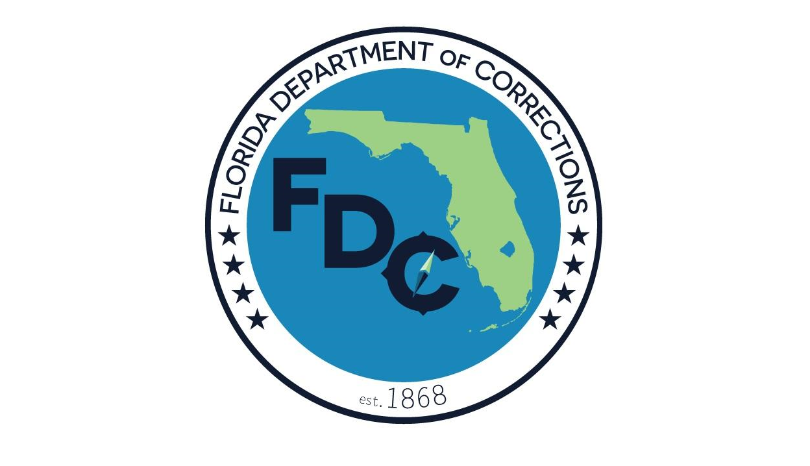
by Melissa Bee | Aug 16, 2018 | From the Staff, News
Please sign and share this petition Stop Taking Our Family Visitation Time Away
For news updates about the issue, check here at The Forgotten Majority.


 I am incarcerated at Madison Correctional Institution, in London Ohio. I am serving 26 to life while fighting to prove my innocence. I am ready to get out so that I can reestablish relationships with family, and become the father to my beautiful three year old daughter that I dream of being. I am devoted to family and my community in a positive manner. Society will see with their own eyes that these accusations are not the man I am. I admit that I was not a model citizen, and had some personal issues that I needed to deal with, but nothing I did warranted 26 to life. Please help me prove my innocence.
I am incarcerated at Madison Correctional Institution, in London Ohio. I am serving 26 to life while fighting to prove my innocence. I am ready to get out so that I can reestablish relationships with family, and become the father to my beautiful three year old daughter that I dream of being. I am devoted to family and my community in a positive manner. Society will see with their own eyes that these accusations are not the man I am. I admit that I was not a model citizen, and had some personal issues that I needed to deal with, but nothing I did warranted 26 to life. Please help me prove my innocence.




 Do you wish to create some good news in the world? I know I do. Here is how you, just one person, can change the world.
Do you wish to create some good news in the world? I know I do. Here is how you, just one person, can change the world. 





